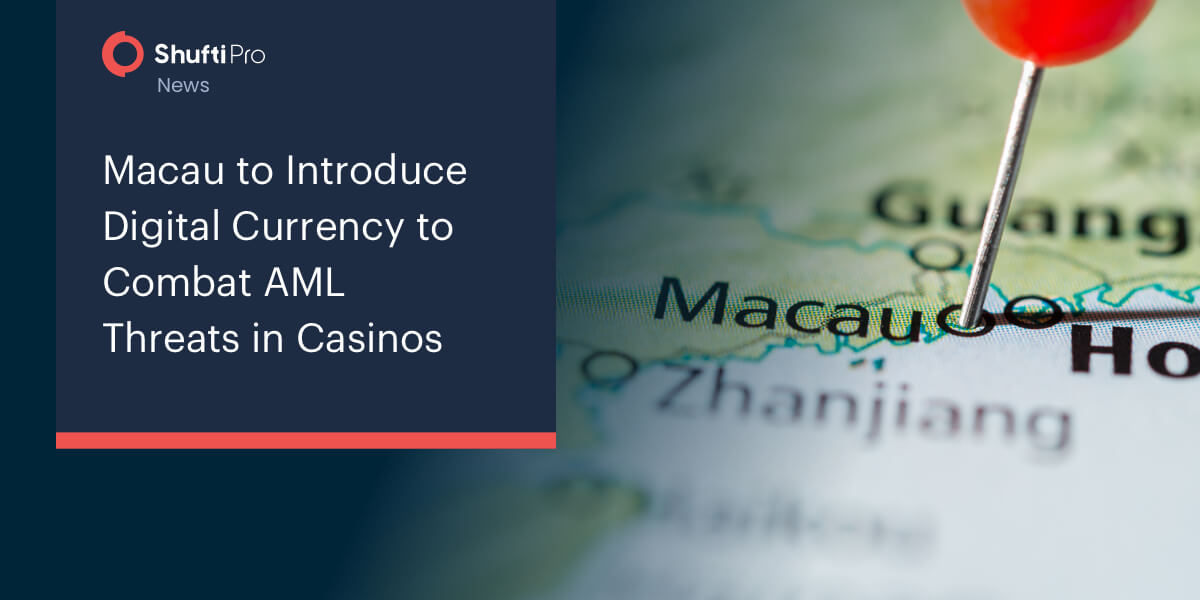Macau to Introduce Digital Currency to Combat AML Threats in Casinos

Macau is moving towards introducing digital currency to fight money laundering and tax evasion in the gambling sector. The government is seeking to amend the laws by regulating the issuance of virtual legal tender. The government plans on working with the Central Bank of China to understand the practicality of issuing a digital currency.
There is yet to be a formal announcement on how the digital currency rules will be implemented but the casino junkets are already concerned that the traceable and government-linked currency enforcement will be an end of the industry that is already struck with the stricter regulations regarding the high-stakes gambling and the COVID-19 pandemic.
Macau’s regulators have approached many casino operators to discuss how feasible it would be to buy the casino chips from the digital yuan. The main purpose of introducing digital currency for the gambling sector is to minimize money laundering, tax evasion, and terrorism financing.
Macau moves a step closer to the potential introduction of a digital currency in threat to Casinos pic.twitter.com/25s2ozzQSQ
— InsideTechWorld (@theITW) April 14, 2021
This plan comes during the slow revival from the fall in casino revenue. The pandemic has led to a drop in travel which has further kept the Chinese gamblers away.
However, casino analysts are still working to gather more details to assess the effects of the introduction of digital yuan. If digital currency is mandated as the only option for buying, gambling chips would end up being a disadvantage for casinos of Macau by eventually eliminating the system of junkets. However, if seen for long-term effects, the digital currency would have a positive impact as it can become an option for offering easier access to money.
The People’s Bank of China introduced digital currency in many cities becoming the first major bank to authorise a virtual currency. This has raised concerns for the USA about the potential threat to the dollar from being the reserve currency for the world in the long term.

 Explore Now
Explore Now













